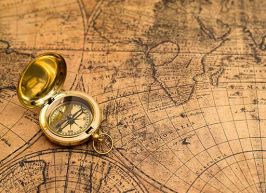Melden Sie sich bei getAbstract an, um die Zusammenfassung zu erhalten.

Melden Sie sich bei getAbstract an, um die Zusammenfassung zu erhalten.
Peter L. Bernstein
Wedding of the Waters
The Erie Canal and the Making of a Great Nation
W.W. Norton, 2005
Was ist drin?
Did the New Yorkers who fought to build the Erie Canal in 1817 know that they were opening America for global business?
Recommendation
From a modern perspective, a ditch allowing barges to travel between Rust Belt cities in upstate New York hardly seems the stuff of high drama. But well-regarded economist and historian Peter L. Bernstein accomplishes the tough task of making readers care about the Erie Canal, the massive public works project that he believes changed the course of U.S. and world politics and trade. This compelling study portrays the waterway as a project involving enough risk and adventure to make a dot-com entrepreneur pale. Bernstein girds his history with ample modern-day perspectives to keep you interested. He does bog down at times in the arcane convolutions of early nineteenth century political disputes, but still spins a mostly fascinating yarn. getAbstract.com recommends this book to anyone looking for insight into this pivotal point in America’s - and, perhaps, the world’s - economic development.
Summary
About the Author
Peter L. Bernstein is the author of nine books, including the bestseller Against the Gods: The Remarkable Story of Risk. His other books include A Primer on Money, Banking, and Gold and The Price of Prosperity. He is an economic consultant and publishes Economics and Portfolio Strategy, a newsletter for institutional investors.
























Comment on this summary